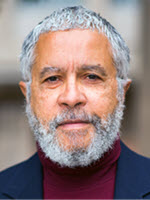Abstract
Excerpted From: Harold McDougall, Prepare, Repair, Defend: A DIY Toolkit for Reparations 2.0, 9 Howard Human & Civil Rights Law Review 151 (2024-2025) (185 Footnotes) (Full Document)
 Olli Tammilehto describes “phase shifts” as a way of charting the progress of movements and organizations dedicated to social justice. For Tammilehto, phase shifts toward social justice proceed in stages, from awakening, to protest, to cooperation, to solidarity - to a new, autonomous social, economic, and political system, a polity based on mutual aid, innovation and self-defense.
Olli Tammilehto describes “phase shifts” as a way of charting the progress of movements and organizations dedicated to social justice. For Tammilehto, phase shifts toward social justice proceed in stages, from awakening, to protest, to cooperation, to solidarity - to a new, autonomous social, economic, and political system, a polity based on mutual aid, innovation and self-defense.
Awakening occurs first, in small-scale settings within a community or network that can generate thinking and perceptions that contradict the established order. With broader exposure, awakening can spread, creating free, open public spaces where voices are raised to protest injustice. If hierarchy and elitism can be avoided in these larger groups, the movement can progress to the third stage, cooperation and mutual aid, aimed at improving the community from which the movement emerged rather than aggrandizing a chosen few.
The fourth stage, solidarity, emerges as these cooperative efforts build trust and support and grow stronger. Solidarity means the community is ready to defend itself and the progress it has made. This stage features small, independent, non-hierarchical groupings using participatory democracy to work toward socio-economic, cultural and political autonomy for the entire community. Confederated, such small groups can establish a network scaled large enough to manage state, national, and international-level complexity, ““shadowing” existing formal political structures and holding them to account.
In this article, I will trace how such developments suggest a pathway for a ““do-it-yourself” approach to reparations. This does not mean letting responsible parties off the hook. Instead, it aims to provide aggrieved communities with a lens through which to see their own path forward clearly, with their own eyes.
[. . .]
The curriculum is designed for execution by school teachers and community organizers. Their programs would use dialog and information-sharing to identify and address systemic inequities in Black communities, exposing the truth about the racially charged challenges and harms mentioned above. The community-based knowledge thus generated can then be shared widely among many communities, broadening the base of participation and also diversifying the Cultural DNA available to solve the problems at hand.
As my students and I have continued the work in my Civil Rights Planning and Sustainable Development seminars, we have continued to advance the curriculum, developing infographics, whiteboard videos, and new teaching and learning approaches. Through the Thurgood Marshall Center at Howard Law School, we are planning a roll-out of the curriculum in schools at a number of cities in addition to Boston, during Black History Month, 2025 and in the Fall 2025 semester.
I am presently looking for more ways to spread this idea and root it in different communities around the country. I plan to reach out to operators of high school networks, such as the Marshall Brennan Center at American University School of Law (reaching twenty high schools around the country), the Street Law project at Georgetown University Law School (reaching two hundred high schools around the country and around the world), the Algebra Project (reaching ________ high schools around the country), and Howard University School of Law's Thurgood Marshall Justice Center (a project partner). The operators of the various local community organization websites are key partners. I am working with them to publish the curriculum through their web sites, to make it directly available to community members and students, free of charge.
In Erik Erikson's terms, I am moving from the penultimate stage of life-- generativity--to the last, wisdom (hopefully). That shift has led me to self-reflection and the realization that I am an “embedded journalist” in the struggle for African and African Diaspora freedom and self-determination. In a very real sense that has been my role for more than fifty years--beginning with my days as an editor of the Harvard Crimson and Managing Editor of the Harvard Journal of Negro Affairs. I have also been inspired and encouraged by many comrades and mentors along the way.
I am writing this article to summarize my experiences and insights throughout my career as a student, lawyer, legal academic, and social activist as a step in the transition to wisdom. The current reparations debate has provided me with an idea of how to attempt that transition, using the lens of prepare, repair and defend. The “wisdom” part comes in using that lens to package my knowledge and experiences in such a way as to make them readily available to those who come after me. My hope is that the many young people who have been part of this process continue the work. If that happens, I will happily pass into the “wisdom” stage.


